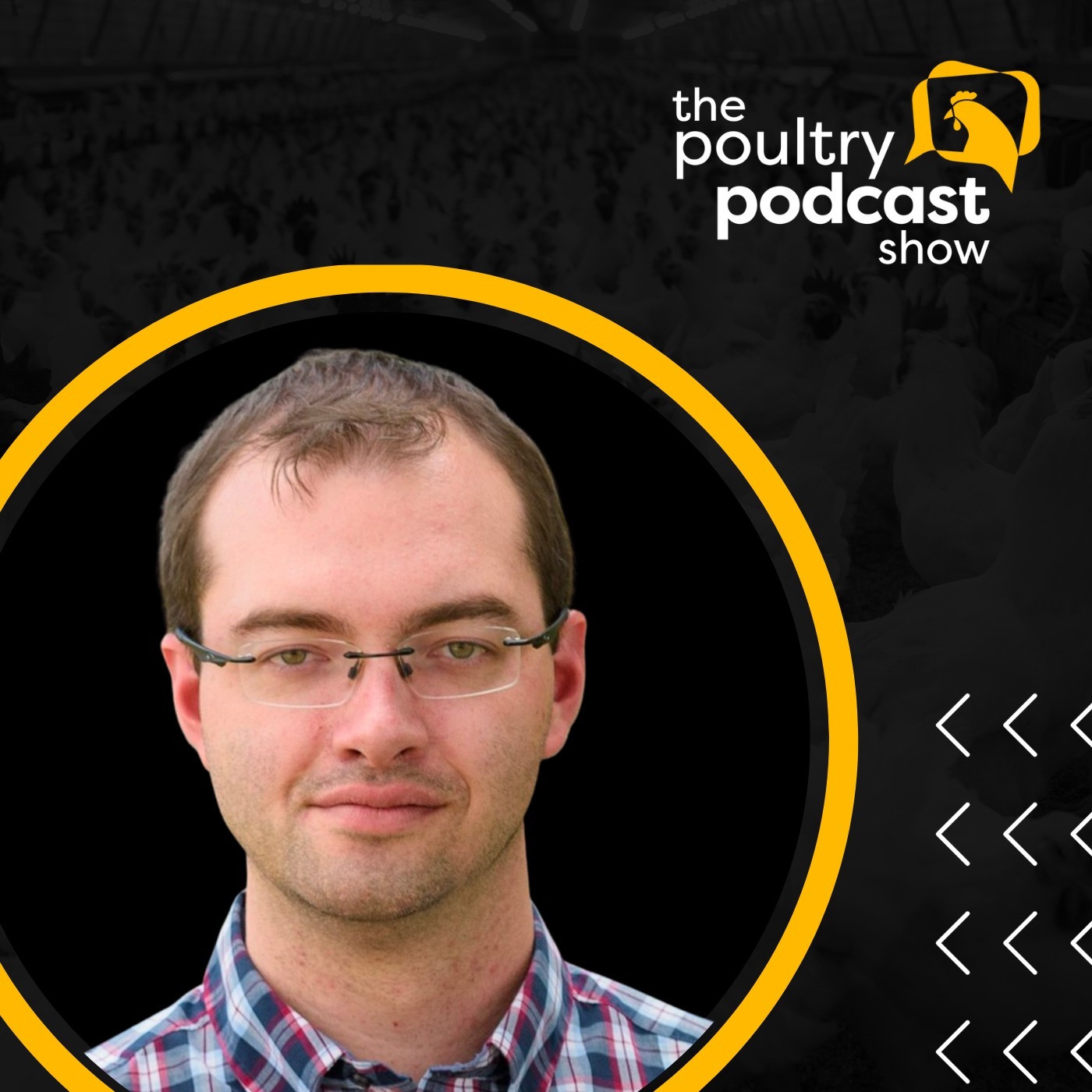Media
Publications:
Documents:
Biography
Ryan Arsenault's research focuses on host-pathogen interactions, antibiotic alternatives and gut health from a molecular proteomic perspective. Ryan can discuss animal to human disease spread (zoonoses), animal production, antimicrobial resistance, immunology and metabolism of host response to disease. His area of study covers the One Health approach: the intersection of animal-human-environmental health, from a disease and agriculture perspective.
Industry Expertise (2)
Research
Education/Learning
Areas of Expertise (5)
Animal Biosciences
One Health
Gut Health
Animal Sciences
Microbiome
Media Appearances (4)
Iowa State University researchers discover new approach to fight Salmonella in poultry
Iowa State University News online
2021-12-16
Researchers in the Department of Food Science and Human Nutrition at Iowa State University have discovered an innovative approach to fight bacteria and their antimicrobial resistance in poultry by exploiting linkages between the gut neurochemical and immune systems.
Animal science vs. coronavirus
University of Delaware UDaily online
2021-03-18
When the COVID-19 pandemic struck Delaware a year ago, most people never heard of a coronavirus, let alone the health implications of this nasty adversary. COVID-19 is new, caused by a novel coronavirus not previously seen in humans, but, down at the southern end of the University of Delaware campus, a group of staff and faculty knew all about similar diseases in animals.
One Health
University of Delaware online
2019-06-20
“The ultimate goal of One Health is prevention and early intervention because you can move upstream of a health problem,” said Ryan Arsenault, University of Delaware assistant professor of gut health and disease pathogenesis, whose research includes antibiotic alternatives for chickens. “Take the flu, for example. If you are studying ducks and avian influenza, prevention and early intervention protects chickens and, in turn, protects human health.”
Alternatives to Antibiotics Could Improve Animal Gut Health
Seeker online
2017-09-29
The food industry has been undergoing a course correction these past several years, with companies removing trans fats, excess sugars, and other unhealthy ingredients from products. Removal of antibiotics from livestock animals has been part of that effort.
Articles (5)
Development and Assessment of an Asynchronous Course on Pandemic Preparedness and One Health: A Survival Toolkit for the Next Pandemic
2023 European Symposium on Food Safety2023 Following the COVID pandemic, it is clear from global contemporary news media that society needs enhanced education and understanding on multiple topics related to navigating the next pandemic. One Health offers a collaborative and transdisciplinary approach to sharing information with the goal of achieving optimal health outcomes, recognizing the interconnection between people, animals, plants, and their shared environment. A course was developed to frame topics critical to a pandemic in a One Health context.
A microencapsulated feed additive containing organic acids and botanicals has a distinct effect on proliferative and metabolic related signaling in the jejunum and ileum of broiler chickens
Frontiers in Physiology2023 Well designed and formulated natural feed additives have the potential to provide many of the growth promoting and disease mitigating characteristics of in-feed antibiotics, particularly feed additives that elicit their effects on targeted areas of the gut. Here, we describe the mechanism of action of a microencapsulated feed additive containing organic acids and botanicals (AviPlus®P) on the jejunum and ileum of 15-day-old broiler-type chickens. Day-of-hatch chicks were provided ad libitum access to feed containing either 0 or 500 g/MT of the feed additive for the duration of the study.
A Comparison of the Immunometabolic Effect of Antibiotics and Plant Extracts in a Chicken Macrophage-like Cell Line during a Salmonella Enteritidis Challenge
Antibiotics2023 Immunometabolic modulation of macrophages can play an important role in the innate immune response of chickens triggered with a multiplicity of insults. In this study, the immunometabolic role of two antibiotics (oxytetracycline and gentamicin) and four plant extracts (thyme essential oil, grape seed extract, garlic oil, and capsicum oleoresin) were investigated on a chicken macrophage-like cell line (HD11) during a Salmonella Enteritidis infection.
Basal diet composition contributes to differential performance, intestinal health, and immunological responses to a microalgae-based feed ingredient in broiler chickens
Poultry Science2023 Novel feed ingredients may improve poultry health, but functionality of these ingredients may vary across basal diet formulations. This study evaluated a proprietary algae ingredient's effects on broiler performance, intestinal health, systemic immunity, and metabolic/immune kinotypes between corn- or wheat-based diets. Ross 308 broilers were housed in 80 floor pens (14 birds/pen) and assigned to 1 of 4 corn or wheat-based diets ± 0.175% algae ingredient for 42 d.
Protected biofactors and antioxidants reduce the negative consequences of virus and cold challenge while enhancing performance by modulating immunometabolism through cytoskeletal and immune signaling
Poultry Science2022 The aim of this study was to evaluate the effectiveness and mechanism of action of 2 feed additives in reducing the impacts of virus and temperature stressors. We determined the effects of protected biofactors and antioxidants (P(BF+AOx)), and protected biofactors and antioxidants with protected organic acids and essential oils (P(BF+AOx)+P(OA+EO)) on the immune and metabolic health of Ross 308 broiler chickens.
Education (2)
University of Saskatchewan: PhD, Biochemistry 2012
University of Saskatchewan: BSc, Biochemistry 2006
Affiliations (4)
- Frontiers in Veterinary Science : Associate Editor
- Annual Symposium on Gut Health in the Production of Food Animals : Co-Organizer
- Poultry Science Association : Member
- American Association for the Advancement of Science : Member














